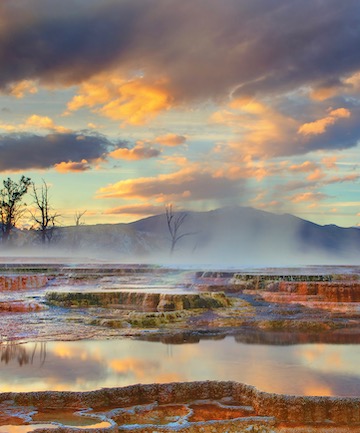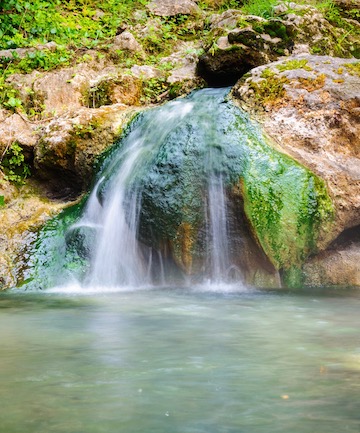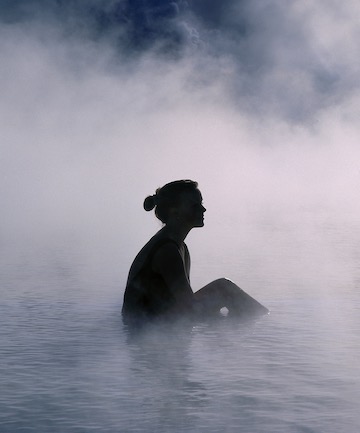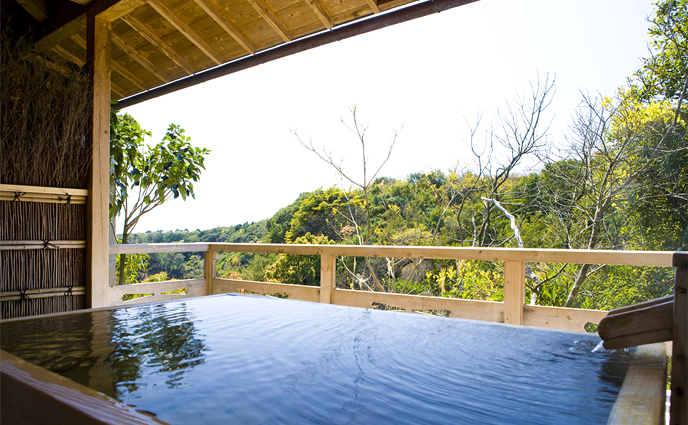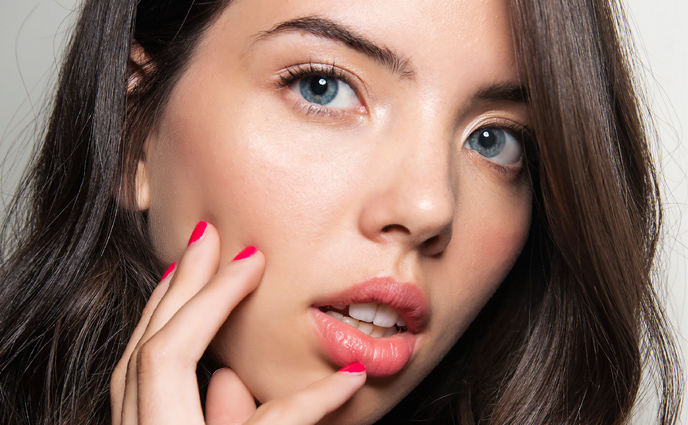The actual physical makeup of every hot spring is different, but Dr. Sunitha Posina, a board certified internist based in New York City, says that most contain a rich assortment of minerals. These include calcium, silica, sulfur, lithium, magnesium, iron, zinc and potassium.
Image via Kevin McNeal/Getty Images
"Some minerals particularly have been associated with helping skin conditions, such as selenium and silica, in conditions like psoriasis and eczema," says Posina. "A study done in La Roche-Posay, France for patients with psoriasis showed improvement in the condition with a three-week balneotherapy [medicinal bathing] believed due to its rich selenium content."
Heather Nicole, a celebrity master esthetician, says that the high concentrations of sulfur in some hot springs (you know the smell!) can also be beneficial regarding the above skin conditions. "These higher amounts of sulfur ease itching or inflammation that is linked to psoriasis and eczema," she explains.
Of course, hot springs aren't replacement therapies for skin conditions.
Image via Alla Lavrenchuk / EyeEm/Getty Images
In the same way a heating pad can provide relief, the warmth from hot springs can help ease pain.
"Heat overall decreases your perception of pain when in moderation by blocking the pain receptors," explains Posina. "A study in Rheumatology International suggested that hot springs may help with pain relief, especially [in cases of] diffuse body pain or fibromyalgia. Another study showed that it helped patients with inflammatory arthritis."
Nicole adds that in Europe medicinal bathing is considered a form of health care to the end that it's actually covered by some health insurance plans. Courses on the subject are even offered at medical institutions.
Image via zrfphoto/Getty Images
"It is known that hot springs usually have certain minerals, as mentioned above, and that some of them are believed to increase blood circulation," says Posina.
Nicole adds that "most hot springs contain calcium and sodium bicarbonate which are absorbed through your skin. This helps to oxygenate the blood leading to better circulation."
Image via Arctic-Images/Getty Images
A nice dip in a steaming hot tub is an excellent way to spend your time. And while the goal here isn't to pit one against the other, it must be said that natural hot springs add another dimension in terms of our physical health.
"The water found in natural hot springs has a high variety of minerals that aren't found in hot tubs, saunas or pools," says Nicole. (Plus, pools and hot tubs are usually drying due to high chlorine content.) "These minerals are great for a variety of health and skin issues, are extremely relaxing and are usually accompanied by breathtaking views which you [can't always] get from inside of a sauna or hot tub."
So the only question left to answer is when will be your next hot spring adventure?
Image via joSon/Getty Images


